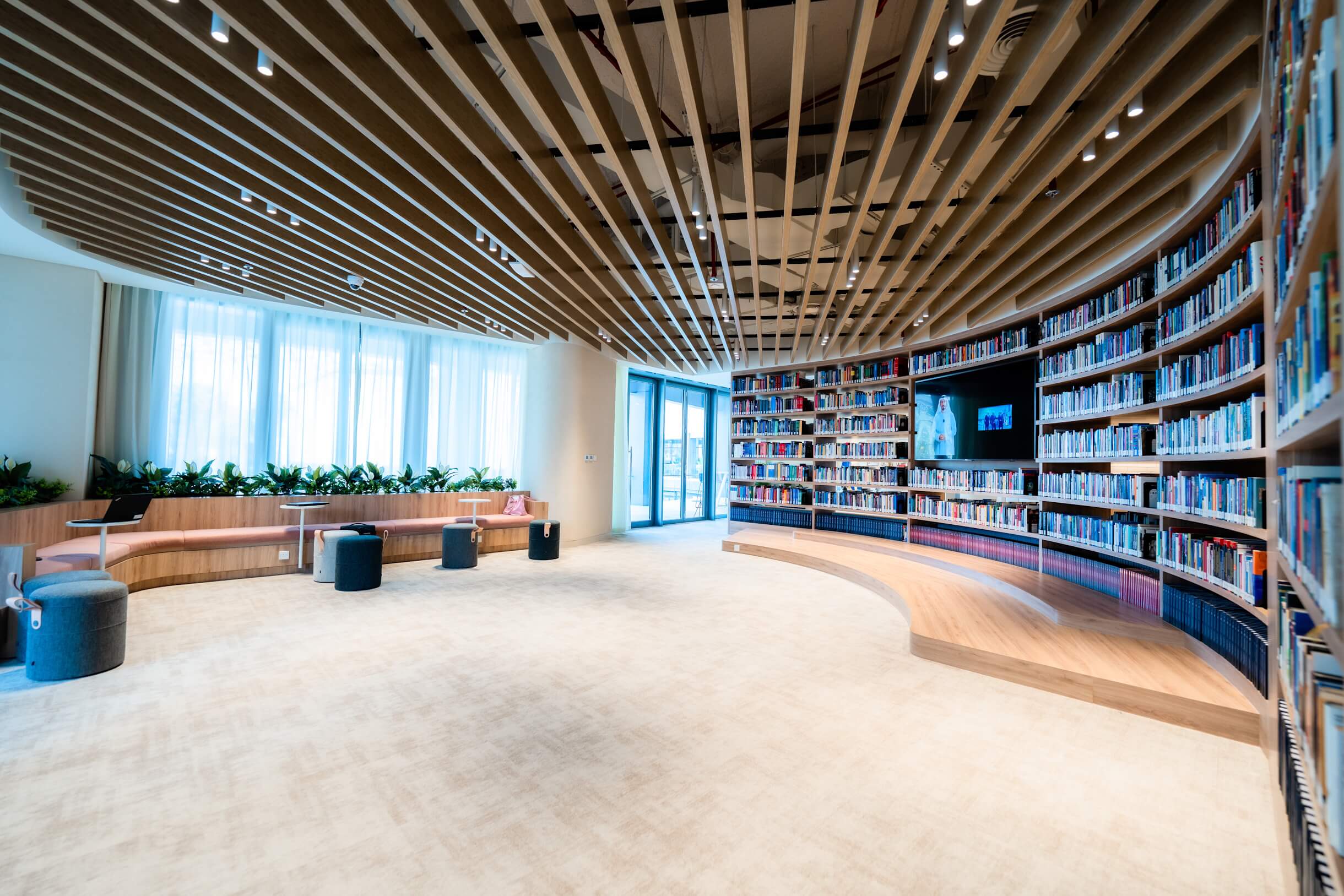MBRSG Repository
Research Repository at MBRSG
Welcome to MBRSG Policy Research Repository

Communities in DSpace
Select a community to browse its collections.
- This community represents student dissertations and publications by the academic community.
- Policy research conducted by the Department of Policy Research that includes proceedings, reports, articles, and policy briefs on wide ranging contemporary issues.
Recent Submissions
Addressing the Physical Risks of Climate Change in the GCC: The role of policy and finance
(Mohammed bin Rashid School of Government (MBRSG), 2026-01) Zakzak, Lama.; Alam, T.
Physical climate risks constitute one of the most significant and complex threats to human wellbeing, economic stability, and infrastructure resilience in the coming decades. For the Gulf Cooperation Council (GCC) countries —Bahrain, Kuwait, Oman, Qatar, Saudi Arabia, and the United Arab Emirates—these risks are projected to increase in severity and frequency. Recent events, such as the April 2024 floods across the Arabian Peninsula, show that extreme weather events are already a reality. Without effective prevention and response measures, these events threaten lives, livelihoods and ecosystems and impose significant economic losses and operational disruptions. While the GCC countries have actively engaged in international climate efforts and are increasingly addressing climate change transition risks through economic diversification and low-carbon strategies, the physical dimensions of climate-related risk remain comparatively underexamined. This policy report fills that informational gap by providing a targeted analysis of climate-related physical risks in the GCC. It aims to support policymakers in identifying strategic responses to enhance climate resilience, with an emphasis on policy and financing options. Drawing on literature review and expert interviews, the report assesses current vulnerabilities, adaptation measures and finance options, and offers practical recommendations to strengthen adaptation across the region.
Global Economic Diversification Index 2026: Economic diversification in times of global disruption
(Mohammed bin Rashid School of Government (MBRSG), 2026-02) Prasad, Aathira; Subramani, Keertana; Qiblawi, Zeid; Saidi, Nasser; Salem, Fadi; Shepherd, Ben
The Global Economic Diversification Index (EDI) 2026 provides a comprehensive measure of economic diversification across 115 countries over 23 years. The latest edition highlights the importance of adopting economic policies that enhance diversification and support sustainable growth, particularly in countries heavily reliant on natural resources. The report reveals that the United States, China, and Germany continue to hold the top three positions as the most diversified economies. Among commodity-dependent nations, Mexico and Malaysia retain their leading positions, while countries such as Saudi Arabia, the UAE, and Qatar have demonstrated significant progress since 2000. The findings emphasize the critical role of policy reforms in driving economic transformation, especially in regions historically dependent on oil and gas. The 2026 edition builds on the advancements introduced in previous reports, particularly the EDI+ index, which explores the impact of digital trade on economic diversification. The inclusion of digital indicators within the trade sub-index highlights how digital transformation is accelerating economic diversification in many emerging economies. However, disparities persist, with lower-income nations struggling to return to pre-pandemic levels without significant investments in digital infrastructure. The report serves as a vital tool for policymakers, researchers, and global stakeholders to understand economic diversification trends and future directions.
Arab Region SDG Index and Dashboards 2026: Financing sustainable development in the Arab region
(Mohammed bin Rashid School of Government (MBRSG) and Sustainable Development Solutions Network (SDSN), 2026-02-05) Zakzak, Lama.; Qiblawi, Zeid.; Luomi, Mari; Subramani, Keertana; Fuller, Grayson; Salem, Fadi; Lafortune, Guillaume
The Arab Region SDG Index and Dashboards Report 2026 provides a comprehensive assessment of the region’s progress on the Sustainable Development Goals (SDGs), offering key insights into sustainable development trends, regional challenges, and pathways to resilience-building.
The Arab region’s overall SDG score stands at 60.6, with Algeria, Egypt, Jordan, Morocco, Tunisia, and the UAE achieving at least two-thirds of the total score. However, Least Developed Countries (LDCs) and conflict-affected nations continue to fall below the regional average. The report highlights stark disparities, underscoring the need for targeted efforts to close development gaps and build resilience.
Key challenges include SDG 5 (Gender Equality), where all Arab countries score low, and SDG 16 (Peace, Justice & Strong Institutions), which remains significantly impacted by regional conflicts. SDG 2 (Zero Hunger) presents concerns related to nutrition and unsustainable agricultural practices, while SDG 8 (Decent Work & Economic Growth) highlights persistent unemployment in several countries, particularly among the youth.
Despite these challenges, progress is observed in SDG 9 (Industries, Innovation & Infrastructure), driven by digital infrastructure growth, and SDG 6 (Clean Water & Sanitation), with improvements in basic water services. However, water stress and environmental sustainability remain pressing concerns, with SDG 14 (Life Below Water) and SDG 15 (Life on Land) requiring urgent interventions. Encouraging trends in SDG 3 (Good Health & Wellbeing) reflect improvements in child health. Persistent data gaps remain particularly in SDG 10 (Reduced Inequality) and SDG 1 (No Poverty), highlighting the need for stronger national statistical systems. The Arab Region SDG Index and Dashboards 2026 is a vital tool for policymakers, researchers, and stakeholders to develop evidence-based strategies for advancing sustainable development.
Network Decentralized Governance: Examples, Risks, Benefits, and Applications
(Mohammed bin Rashid School of Government, 2025-12-01) Esposito, Mark.; Morini, Massimo
This review explores the current landscape of decentralized governance as enabled by blockchain technology, examining its development, implementation, risks, benefits, and applications. We survey key case studies including Bitcoin, Ethereum, Tezos, Cardano and Algorand, assess
the governance models of DAOs, and consider emerging regulatory frameworks such as the U.S. Financial Innovation and Technology Act. We also
explore how decentralized governance interfaces with AI and operational resilience. The review concludes by identifying future directions and
conditions necessary to realize effective decentralized systems.
المؤتمر العالمي لتنويع الاقتصاد 2024
(Springer Nature, 2026) سالم، فادي.; سعيد، حامد.; سوبرماني، كيرتانا.
